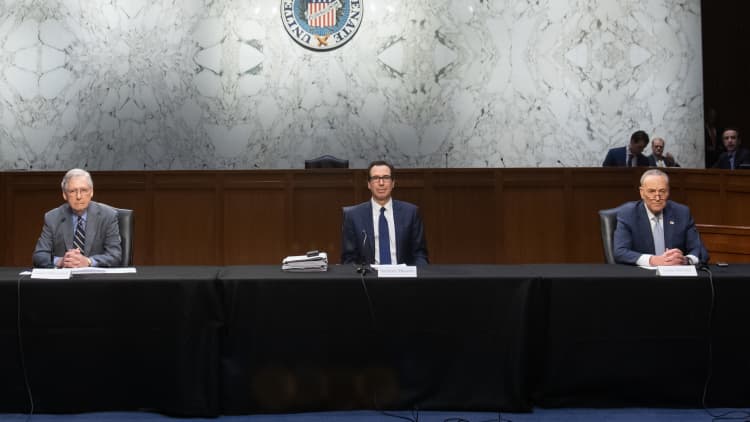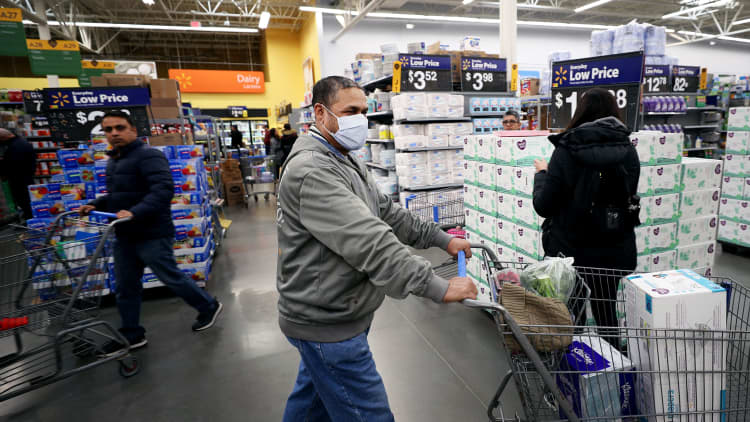
Everyday Americans are about to get a one-time cash infusion.
As part of a relief bill to combat the economic impact of the coronavirus pandemic, the government will provide payments of up to $1,200 for individuals or $2,400 for married couples, with $500 added for every child, based on 2019 tax returns for those who filed them and 2018 information if they have not.
For many, this may be their one shot at building an emergency fund or simply staying afloat.
"Use these funds if you need to pay for medication, groceries, and sudden life emergencies, this will be an important part of your financial lifeline," said Winnie Sun, managing director of Sun Group Wealth Partners in Irvine, California.
To make the most of this money, experts offer the following advice on what you should do with your check after accounting for critical expenses.
1. Create an emergency fund
"This is time to further build emergency savings with the hope, but not the promise, that all of those funds won't be needed," said Mark Hamrick, senior economic analyst at Bankrate.
In its 2020 Financial Planning Survey, First National Bank of Omaha in Nebraska found that 49% of U.S. adults expect to be living paycheck to paycheck this year and 53% do not have an emergency fund that covers at least three months of expenses.
Many Americans also are currently, or will be, facing unexpected medical expenses, Hamrick added, so "conservation of cash, including savings, is the order of the day."
2. Pay debt
Even before the spread of COVID-19 brought the U.S. economy to a near standstill, Americans were taking on increasing amounts of debt.
According to data from the Federal Reserve, the U.S. has surpassed $1 trillion in credit card debt — the highest level since the Great Recession.
More from Personal Finance:
How to build a cash reserve
Coronavirus bill boosts unemployment benefits
How to get fast cash during the pandemic
That stimulus check would be put to good use paying down some of those high-interest balances, said Michael Foguth, president of Foguth Financial Group in Brighton, Michigan. "Make sure you're paying minimum payments on all credit cards or bills."
Alternatively, ask your card issuer for a break. A growing number of lenders are allowing cardholders to skip a payment and waiving fees, often on a case-by-case basis, according to Ted Rossman, industry analyst at CreditCards.com.
3. Buy time

Rather than stockpiling canned food and toilet paper, limit your spending to only the essential items you need in the weeks ahead, Foguth advised. That includes just necessary supplies.
"Instead of purchasing too much food, consider spending it week by week and purchasing things in smaller increments," he said.
Impulse shopping, or "Amazon spending," is often the worst budget buster. One quick way to put that in check is to take your credit card information offline to help slow down your spending.
4. Invest
It sounds counterintuitive in days of extreme volatility but, if history is any guide, investing, at least conservatively, is a good long-term bet.
Data from the last financial crisis show that staying invested helped retirement accounts recover more quickly. For those who stayed the course, account values fully bounced back within three years, or by the end of 2010.
In fact, in the decade since then, those who stayed invested have done considerably better than more skittish investors who shied away from stocks, according to Fidelity.



